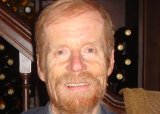 Probably, chemical weapons aren’t at the top of most doctors’ minds in the UK. In the Middle East, where they have been used extensively in recent years and most tragically in August in Syria, doctors have had to inform themselves of protective measures since the threat is a daily reality.
Probably, chemical weapons aren’t at the top of most doctors’ minds in the UK. In the Middle East, where they have been used extensively in recent years and most tragically in August in Syria, doctors have had to inform themselves of protective measures since the threat is a daily reality.
Fortunately that risk has been much reduced owing to the very effective work of the Organisation for the Prohibition of Chemical Weapons (OPCW) which has just been awarded the Nobel Peace Prize.
Attending a conference in Amman and after this a second one in Tel Aviv led by the Israeli Disarmament Movement on the subject of a Weapons of Mass Destruction (WMD) free zone in the Middle East*, I came away both depressed at the lack of progress and optimistic about the prospects for a change in attitudes. The optimism comes from the heartening messages about the chemical weapons convention (which could be a model for a nuclear weapons (NW) convention), the lifting of spirits created by the good vibes coming from Iran, and the greater public pressure on governments following the Arab spring. The speech by the deputy director of OPCW, Grace Asirwatham, was pithy, thoughtful and encouraging: the high level of efficiency shown in the destruction of Syrian chemical weapons was applauded by the large audience of diplomats, EU officials and non-governmental organisations (NGOs), including IPPNW (International Physicians for the Prevention of Nuclear War).
In both Amman and Tel Aviv (only 70 miles apart but feeling like different worlds) the weather was warm and sunny and everyone was basking in the late autumn heatwave – the beaches were full in Israel and the pavement cafes open till late at night. No worries about nuclear weapons there.
So how do people see the nuclear threat in the region? Data from a survey in Palestine show that 81% of the population would like WMD to be prohibited in the Middle East, and 62% of the population were opposed to Palestine possessing WMD. Unfortunately data are not available on Israeli attitudes to NW, chemical weapons or biological weapons. However, Israel is neither a signatory to the biological weapons convention nor the non-proliferation treaty (NPT) and has not ratified the Chemical Weapons Convention (CWC). At the Israeli meeting, we were told that the Israeli public in general feel that nuclear weapons add to their protection rather than increasing the risks of nuclear war in the region. Yet up to now there has been virtually no public discourse about the considerable risk of a nuclear arms race in the Middle East. At the Arab meeting it was reported that there is a rush to develop nuclear power across the region as a replacement for oil. The alternative approach of using large scale renewables—surely easier and less risky to put in place in a region where it is sunny every day—seems not to be a political priority.
What were the takeaway messages from the meetings? First, OPCW is a highly effective organisation, and Israel and Egypt should ratify/sign the CWC (preferably together) at the earliest possible moment. Second, Israel needs to be encouraged to be less opaque about its nuclear weapons and move towards joining a regional treaty mechanism. And, finally, the public (especially in Israel) needs to be informed that nuclear weapons are a huge threat to the health of the region, where there would be huge benefits in cooperation over natural resources and the ever-growing impact of climate change. The last points to a major role for health professionals, in informing, educating and advocacy towards a WMD free zone. In the words of former US defense secretary Robert McNamara: “NW are illegal, immoral, militarily unnecessary and dreadfully dangerous.”
*WMD includes nuclear, biological and chemical weapons and their delivery systems. See more.
Tony Waterston is a retired paediatrician in Newcastle-upon-Tyne, working mainly in the community with long term conditions, disability, child abuse and social and mental health concerns. His interests are in child public health, children’s rights and global child health and he leads the RCPCH teaching programme in the occupied Palestinian territories.
